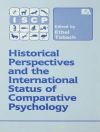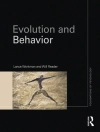Philebus Plato – The Philebus is an extraordinarily creative and profound examination of what makes for a good human life, containing some of Plato’s most sophisticated discussions of moral psychology, knowledge, metaphysics, and philosophical methodology. The Philebushad a far greater influence on Aristotle’s ethics than the frequently studied Republic – yet historians of philosophical ethics have relatively neglected it and existing commentaries tend toemphasize certain aspects at the expense of others. This edited volume, the first of its kind, brings together leading scholars of ancient philosophy to take a fresh and comprehensive look at this important work. Each essay focuses on a relatively brief section of the Philebus and discusses the passages methodically, coveringtopics such as pleasure, knowledge, philosophical method, and the human good in detail. The result is not and is not intended to be a commentary, nor does it aim to present a unified interpretation. It is instead a series of close, original philosophical examinations, often in conversation with each other, which together provide continuous coverage of the Philebus. This reference work, a useful resource for teaching and studying, is valuable reading for researchers, scholars, graduatestudents, and advanced undergraduates interested in Plato, ancient Greek ethics, and in the history of ethics.
About the author
Plato is a Classical Greek philosopher, mathematician, student of Socrates, writer of philosophical dialogues, and founder of the Academy in Athens, the first institution of higher learning in the Western world. Along with his mentor, Socrates, and his student, Aristotle, Plato helped to lay the foundations of Western philosophy and science.
Plato is one of the most important Western philosophers, exerting influence on virtually every figure in philosophy after him. His dialogue The Republic is known as the first comprehensive work on political philosophy. Plato also contributed foundationally to ethics, metaphysics, and epistemology. His student, Aristotle, is also an extremely influential philosopher and the tutor of Alexander the Great of Macedonia












